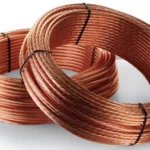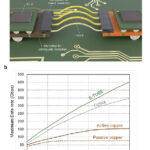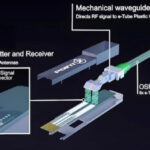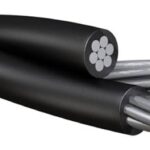What Is CIR Cable?
CIR (Compact Impact Resistant) Cable is a next-generation electrical cable designed to deliver superior impact resistance, mechanical durability, and ease of installation compared to older technologies like Type MC (Metal-Clad) cable.
By combining advanced polymer jackets with robust conductor insulation systems, CIR cable eliminates the need for heavy metallic armor while still providing the same (or higher) level of protection against physical damage.
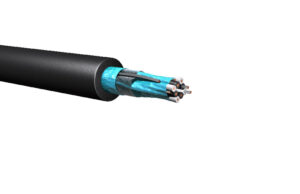
The result: a lightweight, flexible, impact-resistant cable that simplifies installation, reduces material and labor costs, and meets modern safety codes.
Why CIR Cable Was Developed
For decades, Type MC cable and conduit systems were the default choice where impact protection was required. However, they come with drawbacks:
Heavy weight → harder to handle and install.
Rigid metallic armor → less flexibility in tight spaces.
Corrosion risk in harsh environments.
Higher labor cost due to cutting, bending, and connecting metal armor or conduit.
CIR cable was engineered as a direct replacement, offering the same rugged protection with greater efficiency.
Key Features of CIR Cable
Impact Resistant: Engineered polymer jacket provides tested impact protection, meeting or exceeding Type MC requirements.
Lightweight: Up to 40–50% lighter than equivalent MC cable, reducing handling effort.
Flexible: Easier to bend, pull, and terminate in confined spaces.
Nonmetallic Jacket: Corrosion-free, moisture-resistant, and UV-resistant.
Code-Compliant: Listed for use where Type MC is accepted.
Faster Installation: No need for cutting metal armor or threading conduit.
Construction of CIR Cable
While designs vary by manufacturer, CIR cables typically include:
Conductors: Stranded copper or aluminum, compact design to save space.
Insulation: XLPE or THHN/THWN-2 rated insulation for heat and moisture resistance.
Separator Layer: For conductor organization and strip ease.
Protective Jacket: Heavy-duty polymer jacket engineered for impact resistance, flame retardancy, and UV/weather resistance.
Applications of CIR Cable
CIR cable is ideal in any environment where mechanical protection and durability are required but flexibility and lightweight design are also important. Common uses include:
Commercial and industrial buildings
Hospitals and data centers
Manufacturing plants
Power distribution systems
Areas with high impact risk (warehouses, mechanical rooms, transit hubs)
CIR Cable vs. Type MC Cable
| Feature | CIR Cable | Type MC Cable |
|---|---|---|
| Armor / Jacket | Nonmetallic, impact-resistant polymer | Metallic interlocked armor |
| Weight | Lightweight | Heavy |
| Flexibility | High | Limited |
| Corrosion Resistance | Excellent | Metal armor can corrode |
| Installation Speed | Fast | Slower (cutting/terminating armor) |
| Cost Efficiency | Lower labor cost | Higher labor cost |
Advantages of CIR Cable Over Type MC
Safer handling — no sharp edges from metal armor.
Lower total installed cost — faster to pull and terminate.
Improved design flexibility — works in tight bends and complex layouts.
Future-proof — meets modern safety standards for impact and crush resistance.
Cleaner appearance — smooth jacket, no exposed metal.
Conclusion
CIR Cable represents the future of impact-resistant electrical wiring. By replacing outdated Type MC cable with a more advanced, lightweight, and corrosion-proof design, CIR cables deliver higher performance with easier installation and lower cost.
For contractors, engineers, and facility managers, adopting CIR means faster projects, safer systems, and better long-term reliability.
Call to Action
Looking for a reliable source of CIR Cable?
At TOT Wire & Cable, we supply high-quality impact-resistant CIR cables that meet modern industry standards — with competitive pricing and fast delivery.

